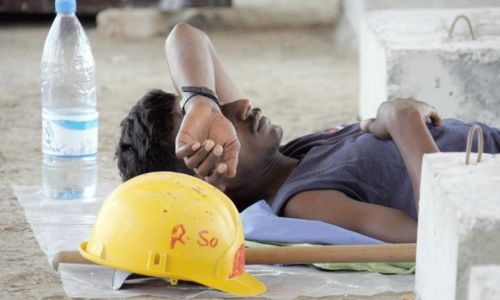The introduction of the Midday Summer Work Ban in Bahrain in 2007 has had a significant impact on occupational safety in the country. This regulation, which prohibits outdoor work during the hottest months of July and August, has led to a 60% drop in occupational injury rates, particularly those related to sunstroke and heat exhaustion. According to Mustafa, Director of Inspection and Occupational Safety at the Ministry of Labour, this measure has helped in providing comprehensive protection and care for all workers in Bahrain.
By implementing Ministerial Decision No. 3 of 2013, which bans work under direct sunlight and in open spaces during the peak heat months, Bahrain has managed to significantly reduce the number of occupational accidents and severe injuries over the past five years. This regulation has not only safeguarded workers from the extreme summer conditions but has also positively impacted productivity. By rescheduling work hours to avoid the midday heat, businesses have been able to maintain project efficiency and ensure safer working conditions, leading to smoother operations across various sectors.
The Midday Summer Work Ban in Bahrain has brought about a more than 40% decrease in occupational accidents and severe injuries over the past five years. This regulation has been a key measure in mitigating the risks posed by high temperatures and humidity during the peak summer months. Mustafa, the Director of Inspection and Occupational Safety at the Ministry of Labour, emphasized that Bahrain has made significant advancements in providing comprehensive protection and care for all workers in the country.
In addition to improving occupational safety, the Midday Summer Work Ban has also had positive effects on businesses in Bahrain. By rescheduling work hours to avoid the peak heat of the day, companies have been able to maintain productivity and ensure safer working conditions for their employees. This has resulted in smoother operations across various sectors, as businesses have adapted to the regulations to ensure the well-being of their workforce.
Overall, the implementation of the Midday Summer Work Ban in Bahrain has been successful in reducing occupational injury rates and improving productivity. This regulation, which prohibits outdoor work during the peak heat months of July and August, has led to a significant decrease in occupational accidents and severe injuries over the past five years. Mustafa, the Director of Inspection and Occupational Safety at the Ministry of Labour, highlighted the positive impact of the regulation on worker safety and productivity in Bahrain.
In conclusion, the Midday Summer Work Ban in Bahrain has proven to be an effective measure in safeguarding workers from extreme summer conditions and reducing occupational injury rates. By rescheduling work hours to avoid the midday heat, businesses have been able to maintain productivity and ensure safer working conditions for their employees. This regulation has not only improved worker safety but has also positively impacted productivity, leading to smoother operations across various sectors in Bahrain.
















